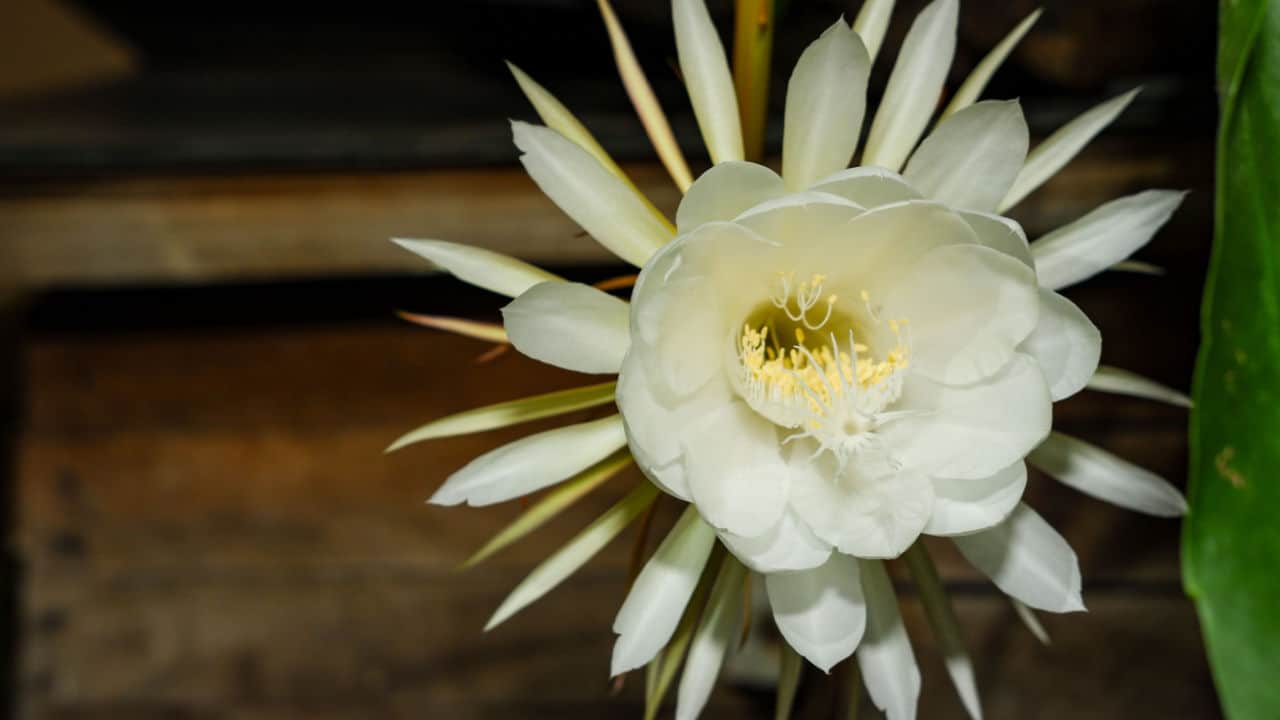
The Queen of the Night flower, also known as the night-blooming cereus, is a captivating and mysterious plant that has fascinated people for centuries. Its unique characteristics and enchanting beauty make it a subject of intrigue and wonder. From its nocturnal blooming habits to its delicate, fragrant blossoms, the Queen of the Night holds a special place in the world of flora.
This article aims to explore 11 fascinating facts about the Queen of the Night flower, shedding light on its history, symbolism, and remarkable attributes. Whether you're a botany enthusiast, a nature lover, or simply curious about the wonders of the natural world, this article will unveil the secrets and allure of this extraordinary plant. Join us on a journey into the realm of the Queen of the Night, where we'll uncover the captivating details that make this flower a true marvel of nature.
Key Takeaways:
- The Queen of the Night flower blooms once a year, releasing a sweet fragrance at night. It’s a unique cactus with symbolic significance in different cultures and has inspired artistic works.
- This captivating flower, scientifically known as Selenicereus grandiflorus, relies on moths for pollination. Its short-lived blooming period and specific care requirements make it a fascinating and challenging plant to cultivate.
The Queen of the Night flower blooms once a year.
The Queen of the Night, also known as the night-blooming cereus, is a unique flower that blooms only once a year. This annual event adds to the mystique and allure of this exquisite plant.
The flower blooms at night.
True to its name, the Queen of the Night flower blooms exclusively at night, creating a captivating display of beauty under the moonlight. This nocturnal blooming behavior adds a sense of enchantment to the flower.
The Queen of the Night flower is a type of cactus.
Belonging to the cactus family, the Queen of the Night flower is a stunning example of the diverse and fascinating world of cacti. Its unique characteristics set it apart from other flowering plants.
The flower emits a sweet fragrance.
During its brief blooming period, the Queen of the Night flower releases a delightful, sweet fragrance into the night air, adding an extra dimension to its allure.
The Queen of the Night flower is pollinated by moths.
The Queen of the Night flower relies on moths for pollination. This intricate relationship between the flower and moths is a remarkable example of nature's interconnectedness.
The flower's blooming period is short-lived.
Despite its captivating beauty and fragrance, the Queen of the Night flower's blooming period is fleeting, adding to the ephemeral nature of its allure.
The plant requires specific care to thrive.
Caring for the Queen of the Night flower requires attention to its specific needs, making it a rewarding yet challenging plant to cultivate.
The flower has symbolic significance in various cultures.
The Queen of the Night flower holds symbolic significance in different cultures, often representing beauty, mystery, and the ephemeral nature of life.
The Queen of the Night flower has inspired artistic works.
Its captivating beauty and unique blooming behavior have inspired artists and creators, leading to the depiction of the flower in various forms of art.
The flower's scientific name is Selenicereus grandiflorus.
The Queen of the Night flower is scientifically classified as Selenicereus grandiflorus, adding a touch of scientific intrigue to its mystique.
The Queen of the Night flower has medicinal uses.
In addition to its aesthetic and cultural significance, the Queen of the Night flower has been utilized for its medicinal properties in traditional practices, adding another layer to its multifaceted nature.
The Queen of the Night flower, also known as the night-blooming cereus, is a fascinating plant that captivates with its annual nocturnal bloom. Belonging to the cactus family, this unique flower emits a sweet fragrance and relies on moths for pollination. Its short-lived blooming period and specific care requirements add to the allure of this remarkable plant. With symbolic significance in various cultures and inspiration for artistic works, the Queen of the Night flower, scientifically classified as Selenicereus grandiflorus, continues to enchant and intrigue with its multifaceted nature.
Conclusion
In conclusion, the Queen of the Night flower, also known as the night-blooming cereus, is a fascinating and enchanting plant with a rich history and remarkable characteristics. From its stunning nocturnal blooms to its symbolic significance in various cultures, this flower continues to captivate the hearts and minds of people around the world. Its unique beauty and mysterious allure make it a standout addition to any garden or collection of exotic plants. By understanding its growth requirements and cultural significance, enthusiasts can fully appreciate the magic of this extraordinary flower.
FAQs
What is the significance of the Queen of the Night flower in different cultures?The Queen of the Night flower holds symbolic importance in various cultures, often representing beauty, mystery, and the fleeting nature of life. In some traditions, it is associated with love, romance, and the allure of the nighttime.
How can I care for a Queen of the Night plant to encourage blooming?To encourage blooming, provide the Queen of the Night plant with well-draining soil, ample sunlight, and a consistent watering schedule. Additionally, ensure that the plant is exposed to cooler temperatures and minimal artificial light during the evening hours to mimic its natural habitat.
Was this page helpful?
Our commitment to delivering trustworthy and engaging content is at the heart of what we do. Each fact on our site is contributed by real users like you, bringing a wealth of diverse insights and information. To ensure the highest standards of accuracy and reliability, our dedicated editors meticulously review each submission. This process guarantees that the facts we share are not only fascinating but also credible. Trust in our commitment to quality and authenticity as you explore and learn with us.


